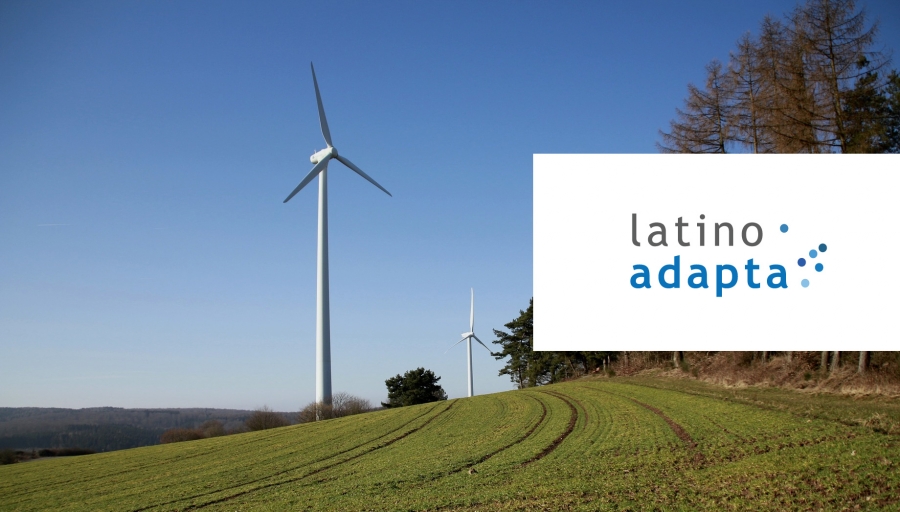Project led by the Regional Centre on Climate Change and Decision-Making will seek to implement NDCs in six Latin American countries

Climate change is a reality that is affecting everyone everywhere. Nonetheless, Latin America is a very vulnerable region when it comes to this phenomenon. Scientific evidence is vast and all research points to the changes in precipitation, winds, and the rise in extreme events that become increasingly risky for the vulnerable populations of this continent.
Upon this knowledge, the “Regional Centre on Climate Change and Decision-Making”, where SARAS Institute is a member and the headquarter institution within the “Unitwin Network”, is leading “Latino Adapta”, a project that seeks to support the capabilities of implementation of the NDCs in Argentina, Brazil, Chile, Costa Rica, Paraguay and Uruguay. Having been funded by the Canadian International Development Research Centre (IDRC), this 24-month-long project intends to strengthen the interactions between academia and the governments from said countries for the implementation of the NDCs.
The project’s main goal is to “Strengthen Latin American national governments’ capabilities in decision-making and the implementation of climate-related policies based on scientific evidence”. It is structured around four main components: evaluation, policy-based research, and the link between political-science and regional exchange. Every component is related to a specific goal and its products are closely inter-related so as to achieve the main goal.
Implementation phase
Latino Adapta consists of two phases. The first one includes a diagnosis with the aim of evaluating the existing adaptation knowledge gaps so as to facilitate the implementation of the NDCs in the six chosen countries. The results from this phase will be disseminated in an academic paper and six nationally-focused documents.
The documents will be targeted at researchers, civil society and the governmental actors involved in the implementation of the NDC and negotiations under the United Nations Framework Convention on Climate Change (UNFCCC). They will represent a detailed reference on the status of NDC adaptation efforts in each country, while offering detailed information on the main barriers and knowledge gaps hindering their implementation.
Later on, and drawing from these results, work is planned to be continued with the counterparts of national governments. The investigation will focus on the application of policies to strengthen climate-related decision-making and bridge the gaps identified in climate change adaptation. A series of twelve policy-briefs and seminars are planned to be offered for dissemination later on.
At the same time, collaboration with national governments for the implementation of the NDCs in their adaptation component is planned to take place through the provision of evidence-based scientific support.
Throughout the project, a series of inter-regional exchanges focused around experiences, expertise, coordination tools, monitoring and evaluation are planned. They will particularly aim at celebrating South-South cooperation and dialogues. Moreover, a series of regional events and presentations will take place in an attempt to facilitate the exchange of information.
Same goal, different realities
Every country’s capability to adapt to climate change is key. According to the Intergovernmental Panel on Climate Change (IPCC), adaptation is defined as “the ability of a system, institution, human and other organisms to adjust to potential hazards and take advantage of the opportunities or respond to its consequences”. Therefore, adaptation capability is inherently linked to the resources available to every government when taking action and implementing efficient policies. By acting on countries that present different realities and face different challenges, there is potential for further innovation and learning, while creating the conditions to reduce the knowledge gaps faster and more consistently.
Participating institutions by country
(Regional Centre on Climate Change and Decision-Making partners)
Argentina: Latin American School of Social Sciences (FLACSO), National Technological University (UTN), Postgraduate School at the Technological Institute of Buenos Aires (ITBA), Environment and Natural Resources Foundation (FARN).
Brazil: Institute of Energy and Environment (IEE) – University of São Paulo (USP), Centre for Sustainability Studies –Getulio Vargas Foundation (FGV).
Chile: Adapt Chile, Global Change Centre – Catholic University of Chile (CCG-UC).
Costa Rica: Tropical Agronomy Centre for Research and (CATIE)
Paraguay: Moisés Bertoni Foundation, Paraguay, Catholic University of Asuncion, Paraguay
Uruguay: South American Institute for Resilience and Sustainability Studies (SARAS), Faculty of Administration and Social Sciences – ORT University, Uruguay and University of the Republic.
Regional-level:
Avina Foundation – General project coordination
Unesco – Member of the Head.
Funded by:
Canada’s International Development Research Centre (IDRC)
